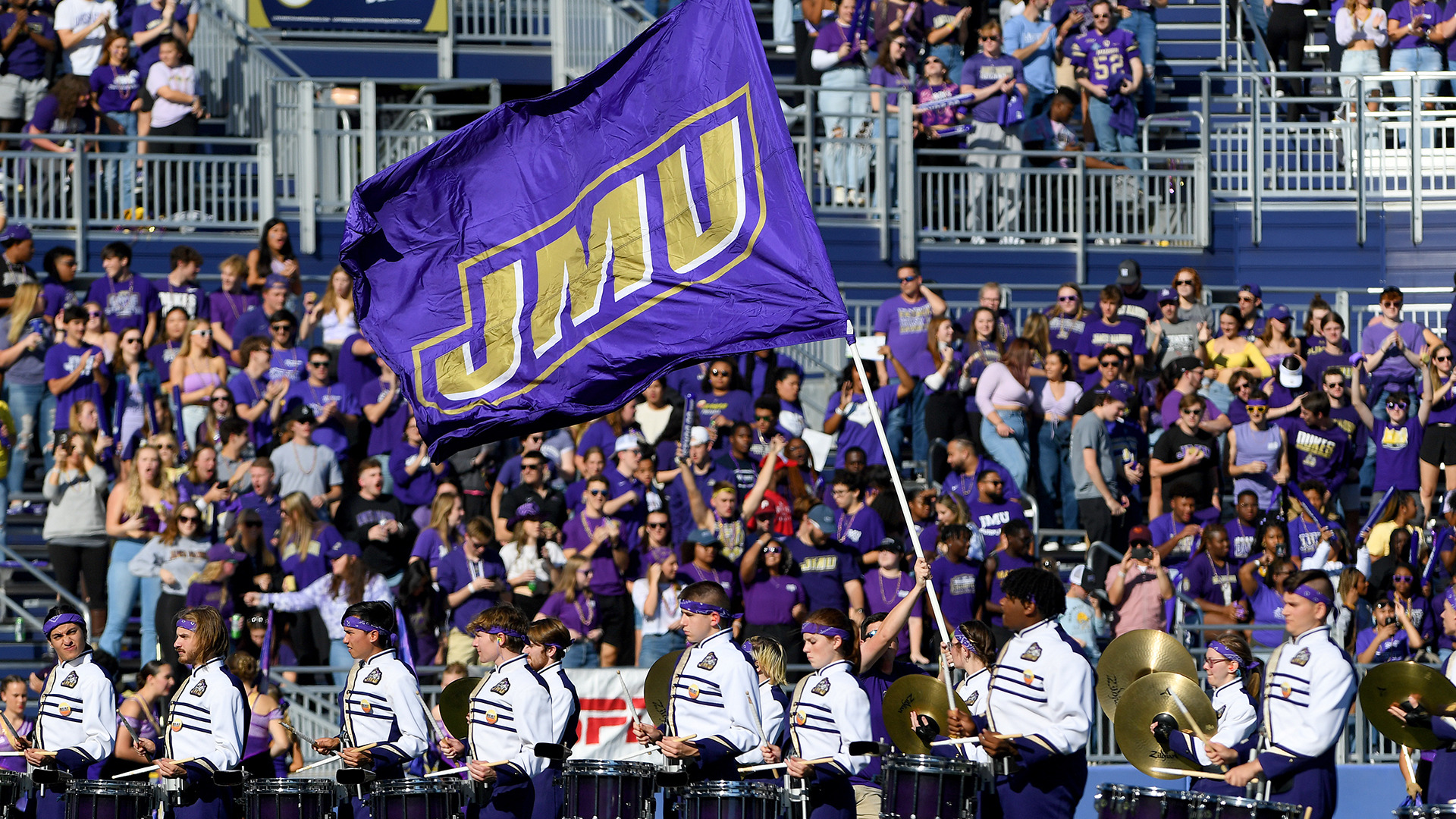Image courtesy of JMU Athletics Communications
By Bennett Conlin
A law firm hired by Virginia Attorney General Jason Miyares sent a letter to the NCAA on Wednesday threatening a lawsuit if the NCAA didn’t grant JMU football immediate postseason eligibility. Later Wednesday, the NCAA denied JMU’s request for guaranteed postseason access.
The next step, seemingly, is a lawsuit.
In the full letter, which Shane Mettlen of The Daily News Record posted on social media, the law firm lays out a timeline for its legal action against the NCAA. The law firm asks the NCAA to respond to the letter by Friday at noon with the contact information of the NCAA’s outside legal counsel so “we can provide them a copy of the complaint that we file and request that we make themselves available for a hearing seeking emergency relief on either Nov. 21 or 22, at a time convenient to the Court.”
The letter says JMU seeks a temporary restraining order and preliminary injunction, arguing that JMU will be “irreparably harmed without relief.” The letter argues that JMU’s potential loss by not being granted immediate bowl eligibility, which carries with it access to the Sun Belt title game and potentially a New Year’s Six bowl game, cannot be rectified through monetary damages after the fact.
If a TRO is granted next week, it would make JMU immediately eligible for bowl games. If it’s not granted, the lawsuit likely won’t be completed by the end of the football season and the Dukes will be in the same spot they’re in today.
What’s the legal argument?
The letter argues that the NCAA’s rules on bowl eligibility for transitioning programs violate antitrust laws.
“In our view, the anticompetitive effect of the rule is plain: it prevents new entrants in FBS from competing in bowl games notwithstanding their demonstrated ability,” the letter said.
JMU is currently 10-0 this season, and the Dukes would be in line to earn the Group of Five spot in a lucrative New Year’s Six Bowl if they finish undefeated. That bowl comes with a $4 million payout for the Sun Belt Conference, and it would provide major exposure to JMU’s program. The letter argues that a New Year’s Six game would be the most watched game in program history, leading to massive benefits in recruiting, alumni engagement, donations, and more.
Very simply, the letter alleges the NCAA’s bowl eligibility rules for transitioning teams like JMU are illegal. The letter argues that JMU will incur financial and other penalties due to an illegal rule.
Chances it leads to immediate bowl eligibility?
So will the letter itself or the imminent threat of legal action lead to immediate bowl eligibility for JMU? That’s unlikely.
“It’s always hard to predict how an antitrust case is going to turn out, and they generally can take a while,” Mit Winter, an attorney at Kennyhertz Perry LLC, told JMU Sports News. “Thinking that this might quickly resolve itself just because a lawsuit is filed is probably a little bit of wishful thinking.”
As for the temporary restraining order or preliminary injunction, Winter thinks that could be tough to receive, but not impossible.
Winter, who played college basketball at William & Mary and is well-versed in legal issues involving the NCAA, said that one of the factors in receiving a TRO or preliminary injunction is showing that your side has a “likelihood of success on the merits of your claims.” Given the extensive discovery process often involved with antitrust cases and reasonable arguments on both sides of this particular case, it could be tough to prove that the Attorney General would likely win the case.
“I think it’d be hard for the Attorney General to show at this point in time that it has a likelihood of succeeding on its claims, but it’s possible,” Winter said.
Winter does think JMU’s legal supporters have a decent argument that missing out on a bowl game would cause “irreparable harm.” Making a high-profile bowl game wouldn’t just boost JMU football’s recruiting profile, it would also boost the ability of the school itself to attract applicants. A school’s boosted reputation is hard to quantify with monetary value.
Maybe that argument is enough for JMU to receive emergency relief for postseason eligibility, but fans shouldn’t bank on the legal threat leading to a change in the Dukes’ bowl status. It’s possible, but far from a guarantee.
Didn’t JMU accept the rules?
JMU knew the rules of its transition when it moved up to the FBS level. The administration was aware of the two-year postseason ban facing the program, but that doesn’t mean a lawsuit can’t have merit, Winter explained.
“When any school joins the NCAA, they know what the rules are, but the rules still have to be legal,” Winter said.
If the transition rules are deemed to violate antitrust laws, it doesn’t matter that JMU knew the rules. If the rules violate the law, they’re not enforceable.
The NCAA also used to have rules preventing athletes from receiving compensation from their name, image, and likeness. Those were deemed illegal, which paved the way for athletes to receive NIL deals.
“If someone challenges them, they can still be declared illegal,” Winter said.



Leave a Reply